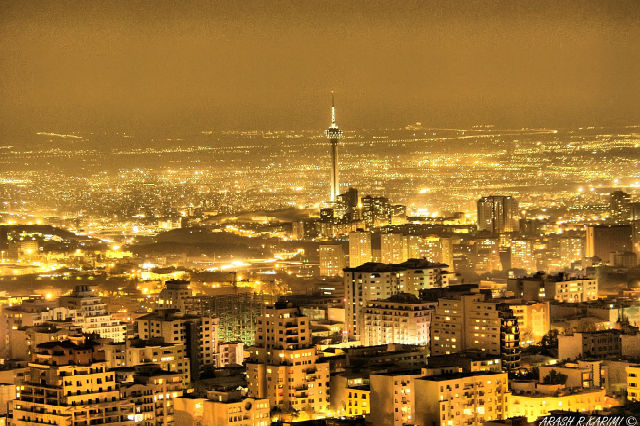New trade agreements between French President Francois Hollande and Iranian President Hassan Rouhani are the latest in a string of trade and investment plans developing across European capitals and beyond, following easing of international sanctions against Iran at the end of January.
The latest figures estimate their value at €40 billion so far.
Over twenty trade missions to the country are expected over the coming months.
Such initiatives may potentially contribute to social and environmental as well as economic development in Iran and provide important new business opportunities for many companies around the world. The Iranian people stand to benefit most if Iran is able to generate a diverse portfolio of inward, and outward, investment.
What is missing so far, however, in the strong push to open new investments in Iran is any reference to the level playing field upon which any responsible business should operate. Business leaders who have already been to Iran on some of the first trade missions of late last year are wondering why, in the rush from ‘red’ to ‘green’ lights, so little attention is given to whether ‘amber’ is needed as well. And if amber lit, what might it take to have that light heeded by all involved.
Pre-competitive cooperation would be in everyone’s interests over the months to come.
Clearly, individual companies will make efforts to act responsibly in their dealings with the authorities in Iran. Some business leaders who have already declared their hand will be undertaking their own non-financial due diligence as they develop strategies for doing business in Iran. But others will not.
Equally important, some governments will integrate human rights, labour standards and other important social considerations into the briefings they provide companies before future trade missions or export credit decisions. But it is also the case that many governments won’t factor these critical issues into their trade and investment strategies. It is concerning that the European Commission has so far been silent on any common approach to addressing broader social issues as part of their planning with respect to Iran.
To observers, the story unfolding today in Iran may feel a bit like the moves to invest in Myanmar all over again, but magnified by a factor of ten. Myanmar and Iran are very different countries, but there are some parallels worth noting. For one, the role of the military in the national economy is a significant similarity and foreign investors must enter local joint ventures with their eyes wide open. Respect for fundamental rights, including freedom of speech and the rights of minorities and women, is other serious concern.
These and other challenges highlight the need for greater efforts at cooperation among governments and all those committed to responsible business practices at home and abroad. Four years ago in the context of Myanmar, a number of governments came together to agree common training components for trade missions, and committed to developing sector-wide approaches to due diligence and the creation of the Myanmar Centre for Responsible Business, now well established in Yangon. IHRB's experience to date in Myanmar with our partners at the Danish Institute for Human Rights has shown such joint approaches well serve investors themselves, but also local businesses, government departments and local civil society.
One common criticism of such cooperation is that singling out individual countries for “special treatment” is unfair and leads to double standards.
In some ways this is an understandable reaction. But in a more fundamental sense it is not a matter of making exceptions. It instead points to the need to reinforce existing commitments. Moments such as the one now unfolding around Iran are critical not only because of the volume of new contracts and projects that are on the table, but also because of the historic geo-political relations that are poised to take important new directions if managed well.
This makes the impact of doing or not doing the right thing much greater.
Responsible business standards are now universal, developed and endorsed by the United Nations in the Guiding Principles on Business and Human Rights. There is no exceptionalism at play. In fact, unlike Myanmar, Iran might soon become an investor into Europe. Iranian companies will be well served to consider their own social licence in the West – in the way that companies such as the Tata Group from India have done well (now the UK’s largest manufacturer).
Whatever happens next, the need for adherence to responsible business practices for all actors entering Iran is clear. Shared approaches to non-financial due diligence are a way to make good on commitments to respecting human rights and seeing to it that companies do their part as well.
Image: Flickr - Arash Razzagh Karimi





























How should businesses respond to an age of conflict and uncertainty?
As 2024 began, European Commission President Ursula von der Leyen aptly summed up our deeply worrying collective moment. As she put it, speaking at the annual World Economic Forum in Switzerland, we are moving through “an era of conflict and...
26 March 2024 | Commentary
Commentary by Scott Jerbi, Senior Advisor, Policy & Outreach, IHRB